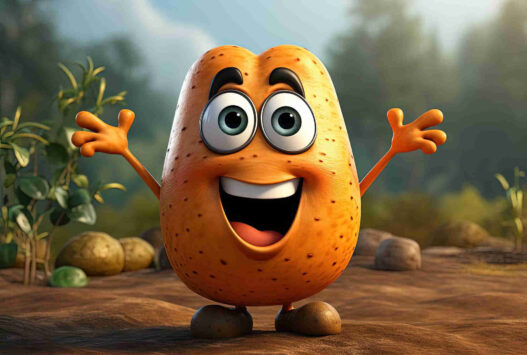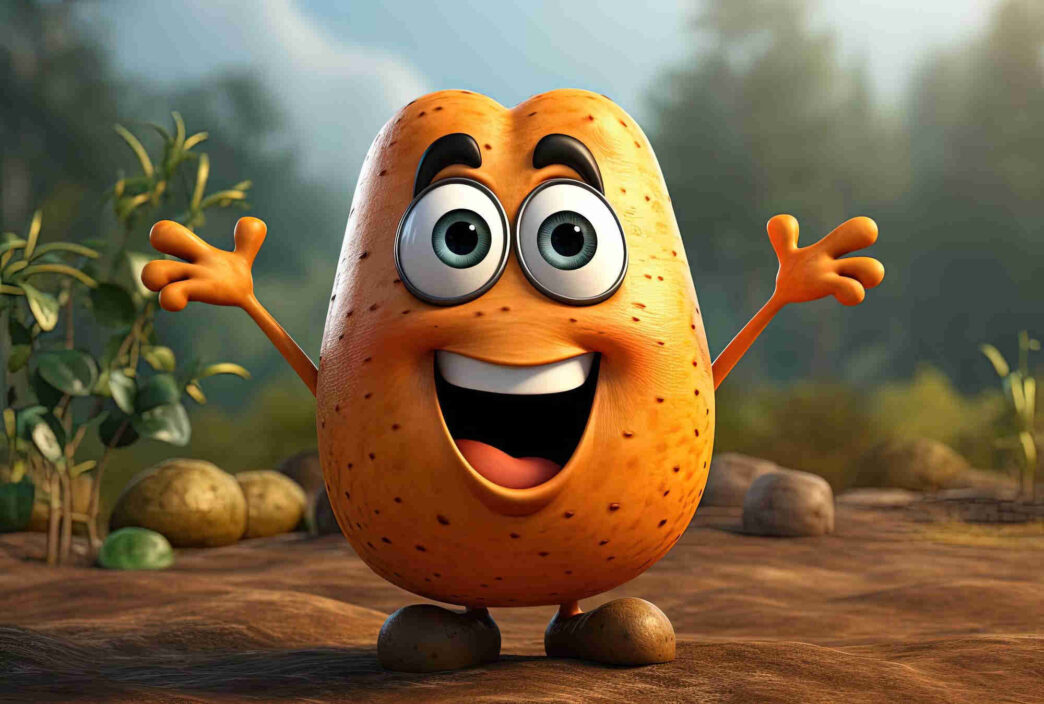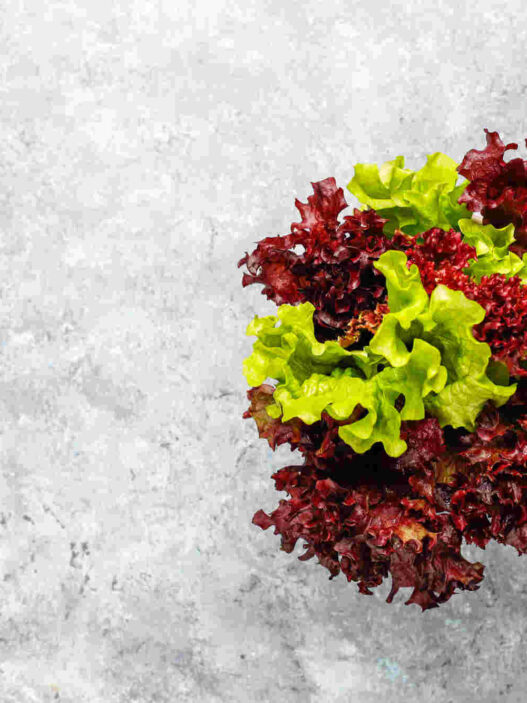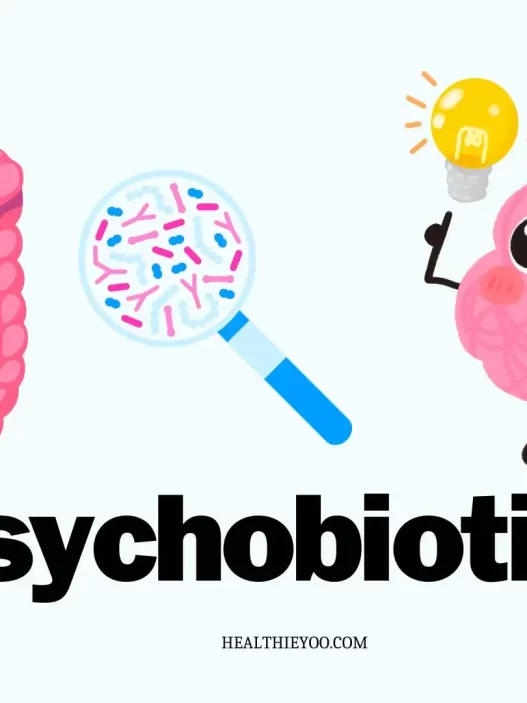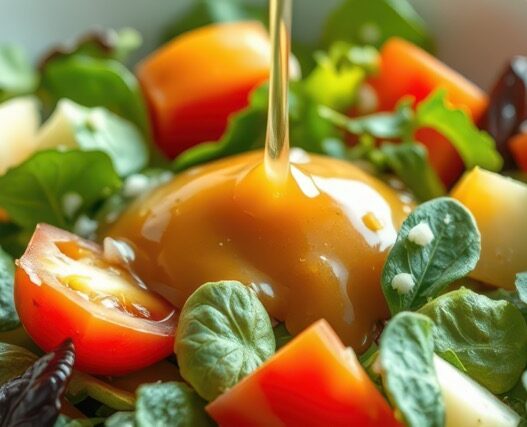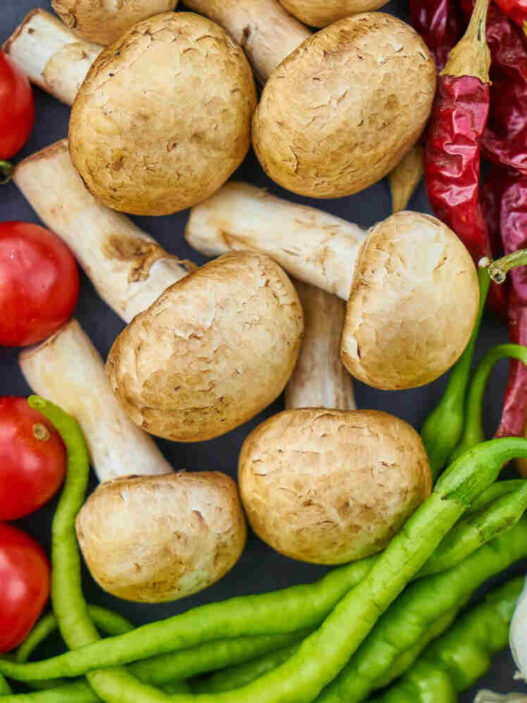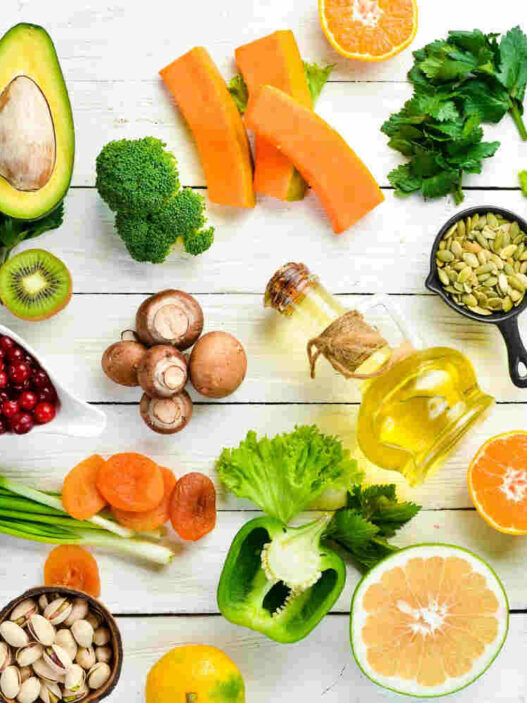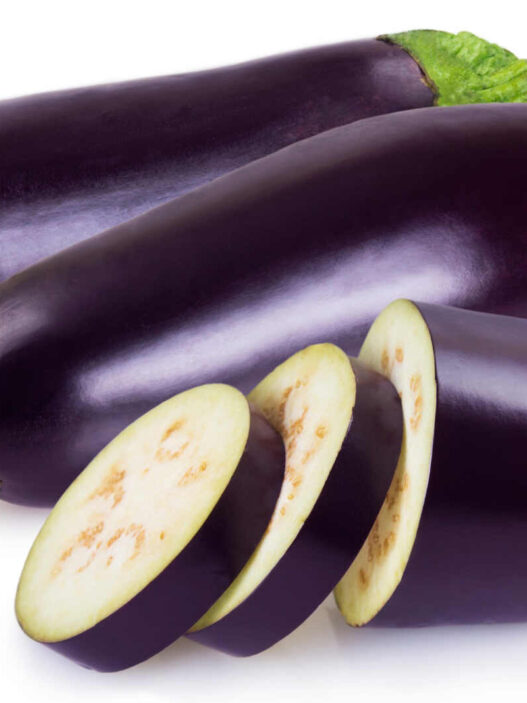In the ever-expanding world of dietary trends and health-conscious choices, whether certain foods contain gluten has become increasingly important. One such food that often sparks curiosity is the humble potato. As a staple in many diets worldwide, it’s crucial to understand whether potatoes are gluten-free. Here we delve into the science behind gluten, and the composition of potatoes, demystifying and ultimately answering the burning questions: Do potatoes have gluten? Do mashed potatoes have gluten? Do potato chips have gluten? Does potato flour have gluten? Is potato gluten-free? But before that, let us first understand what gluten is.
Understanding Gluten
Gluten is a protein found in many cereal grains such as wheat, barley, rye, and their derivatives. It plays a crucial role in providing elasticity to dough, giving bread its chewy texture.
In some individuals, gluten can trigger adverse reactions which can be inflammatory, immunological, or autoimmune. For individuals with celiac disease or gluten sensitivity, consuming gluten can lead to a range of digestive issues and other health concerns. The other type is non-celiac gluten sensitivity, and both types can be treated with a gluten-free diet.
As per NHS, people with gluten sensitivity can have severe intestinal symptoms after eating only a small amount of say gluten foods like pasta. Regularly eating gluten can lead to a greater susceptibility to developing severe complications such as osteoporosis or cancer in later life.
List of Gluten-free Foods
A gluten-free diet involves avoiding foods that contain gluten, a protein.
As per the Celiac Disease Foundation, potatoes are one of the naturally gluten-free foods.
Here’s a list of naturally gluten-free foods:
Fruits and Vegetables
Proteins
- Eggs
- Meat (unprocessed)
- Poultry
- Fish
- Shellfish
- Legumes (beans, lentils, chickpeas)
- Nuts and seeds (unprocessed)
Grains and Starches
- Rice (brown or white)
- Quinoa
- Corn and cornmeal
- Buckwheat
- Millet
- Amaranth
- Gluten-free oats (certified gluten-free)
- Tapioca
Dairy and Dairy Alternatives
- Milk
- Cheese
- Yogurt (check for added ingredients)
- Butter
- Almond milk
- Coconut milk
- Soy milk
Gluten-free Flours
- Almond flour
- Coconut flour
- Rice flour
- Potato flour
- Chickpea flour
- Sorghum flour
Snacks
- Popcorn
- Rice cakes
- Gluten-free crackers
- Potato chips (check for cross-contamination)
Beverages
- Water
- Coffee
- Tea
- 100% fruit juices (without added ingredients)
Condiments and Sauces
- Olive oil
- Balsamic vinegar
- Mustard
- Honey
- Gluten-free soy sauce
- Salsa (check ingredients)
- Homemade sauces without gluten-containing ingredients
Sweets and Desserts
- Ice cream (check for gluten-containing additives)
- Dark chocolate
- Gluten-free cookies
- Gluten-free cakes and brownies
Do Potatoes Have Gluten?
The good news for potato enthusiasts is that potatoes are naturally gluten-free. Potatoes belong to the nightshade family, and their composition does not include the proteins found in wheat, barley, or rye. Therefore, if you’re adhering to a gluten-free diet, you can confidently include potatoes as a nutritious option in your meals.
However, it’s essential to be mindful of how potatoes are prepared and processed. While the potato is inherently gluten-free, certain additives or cooking methods can introduce gluten into potato-based dishes. For example, mashed potatoes made from instant potato flakes may contain gluten if the manufacturer adds gluten-containing ingredients during processing. Additionally, fried potatoes can pose a risk if they are cooked in oil that has been used to fry gluten-containing foods.
Potatoes: A Gluten-free Superfood
Gluten-free Nature
Potatoes are naturally gluten-free. They are a good source of complex carbohydrates, fiber, vitamins, and minerals. As a whole and unprocessed food, they are a safe choice for those following a gluten-free diet.
Cross-Contamination Concerns
While potatoes themselves are gluten-free, the risk of cross-contamination can arise during processing or cooking. Individuals with celiac disease or gluten sensitivity need to be cautious about how potatoes and potato products are prepared, especially in shared kitchens or when dining out.
Potato-Based Gluten Substitutes
Potatoes are often used in gluten-free cooking as a substitute for wheat-based ingredients. Potato flour, for example, is a common alternative in gluten-free baking. Understanding these substitutes can be helpful for individuals seeking gluten-free alternatives.
Health Benefits of Potatoes
Beyond the gluten question, potatoes offer several health benefits. They are rich in vitamins (like vitamin C and B-complex vitamins), minerals (such as potassium), and antioxidants. Potato skin contains fiber. Potatoes only become unhealthy when they are fried or loaded with cheese, etc.
Gluten-Free Recipes with Potatoes
Exploring gluten-free recipes that feature potatoes can be a delightful way to enjoy a variety of dishes.
Potatoes and Oxalate Concern
Dietary oxalate comes from consuming vegetables, fruits, nuts, and grains. These oxalates can bind to calcium and other minerals hence depriving us of their nutritive properties. Therefore, they are considered “anti-nutrients”. For instance, oxalates can bind to calcium in the kidneys and form kidney stones. For more information on oxalates, please refer to a very interesting article by John LaSpina on oxalates.
In regards to the above, it is important to note that potatoes are considered one of the high oxalate foods. Thus, one medium baked potato with skin contains about 97mg of oxalate (mainly due to potato skin), 1 cup of mashed potatoes about 29mg, and 1 oz of potato chips with about 21 mg of oxalate content.
Another disadvantage of potato is ofcourse their high starch content.
Does Potato Flour Have Gluten?
Potato flour is a gluten-free flour made from whole potatoes, including the skin, that have been dried and ground into a fine powder. It has a light and powdery texture, which can contribute to the tenderness and moisture retention in baked goods.
Potato flour is often used in gluten-free baking to improve the structure and texture of bread, cakes, and other baked items. It can also be used as a thickening agent in soups, stews, and sauces. It has a higher thickening power compared to many other gluten-free flours.
In gluten-free baking, potato flour is often combined with other gluten-free flour, such as rice flour, to create a blend that mimics the properties of wheat flour.
It’s essential not to confuse potato flour with potato starch. Potato starch is extracted from the potato and is a white, fine powder. Potato flour, on the other hand, includes the whole potato and has a slightly yellowish tint.
While potato flour is suitable for gluten-free diets, individuals with allergies to nightshade vegetables (potatoes belong to the nightshade family) should exercise caution.
Do Potato Chips Have Gluten?
Potato chips can be gluten-free, but it depends on the brand and the specific ingredients used in their preparation. The basic ingredients for traditional potato chips are potatoes, oil, and salt, and these are naturally gluten-free. However, issues of cross-contamination can arise during the manufacturing process, and some flavored or seasoned chips may contain gluten-containing ingredients. For example, potato chips seasoning may contain malt vinegar and wheat starch.
If you follow a gluten-free diet due to celiac disease or gluten sensitivity, it’s essential to read product labels carefully. Look for chips labeled as “gluten-free” to ensure that they meet the standards for a gluten-free diet.
Do Mashed Potatoes Have Gluten?
Do potatoes have gluten? Mashed potatoes, when made from scratch using basic ingredients like potatoes, butter, milk, and salt, are naturally gluten-free. The primary ingredient, potatoes, does not contain gluten. However, it’s crucial to be mindful of certain factors to ensure your mashed potatoes remain gluten-free.
Pay attention to the ingredients you add to your mashed potatoes. Some commercial seasoning mixes or pre-packaged mashed potato products might contain gluten or gluten-derived additives. Always check labels for gluten-free certification.
If you’re preparing mashed potatoes in a kitchen where gluten-containing products are also handled, there’s a risk of cross-contamination. Be cautious about shared utensils, cutting boards, or contaminated cooking surfaces.
When making mashed potatoes at home, you can stick to whole, fresh ingredients and read labels carefully, especially if you’re using pre-packaged or processed items.
Can you lose weight by going Gluten-free?
Yes, a gluten-free diet often leads to weight loss, however, it may be because of not having gluten in processed foods and refined carbohydrates. There is no concrete evidence that a gluten-free diet can lead to weight loss.
Should you go Gluten-free if you do not have Celiac or Gluten Sensitivity?
Evidence suggests that one should not leave gluten completely and go gluten-free if they do not have gluten sensitivity or celiac disease. This is because going gluten-free will deprive them of the essential nutrition of whole grains, fiber, and micronutrients. The key is to have a balanced diet with higher whole grains and lesser processed food, refined grains or sugar.
Safe Ways to Enjoy Gluten-Free Potatoes
Fresh and Whole
Stick to fresh, whole potatoes to ensure they are completely gluten-free. This way, you can control the cooking process and avoid any cross-contamination.
Check Labels
If you opt for processed potato products, such as frozen fries or instant mashed potatoes, carefully read the labels. Manufacturers are required to disclose any gluten-containing ingredients on the packaging.
Homemade Goodness
Consider making your potato-based dishes from scratch for ultimate control over your meals. This way, you can choose gluten-free ingredients and enjoy the pure goodness of potatoes without any worries.
Conclusion
In conclusion, potatoes are a gluten-free superfood that can be enjoyed by those with gluten sensitivity or celiac disease. Their versatility makes them a fantastic addition to a wide range of dishes, offering a healthy and nutritious alternative to gluten-containing grains. By being mindful of processing methods and ingredients, one can savor the deliciousness of potatoes without compromising your gluten-free lifestyle. So, the next time you’re in the mood for a hearty meal, feel free to indulge in the goodness of potatoes without a gluten-related worry in sight.
Remember, it’s always advisable to consult with healthcare professionals or registered dietitians for personalized advice, especially if you have specific dietary concerns or health conditions related to gluten consumption.
